“We say summer, meaning vacation.” And holidays are closely connected with the sea, beaches and games on outdoors. And this means that we need a high-quality natural remedy for sun protection. But before you start choosing, you need to figure out what UV filters are and how they affect the skin.
What is UV radiation?
UV radiation is divided into three ranges: UV-A, UV-B and UV-C. Almost all UV-C rays are trapped by the atmosphere and therefore do not reach the earth's surface. UV-B rays affect upper layer skin - the epidermis, causing sunburn and sunburn.
Of the entire ultraviolet spectrum, UV-A has the highest penetrating power. This radiation penetrates to the middle layers of the dermis and is the cause of hyperpigmentation, photoaging and melanoma. And if burns from an overdose of UV-B are visible on the skin after a few hours, then negative impact UV-A is like the ticking of a time bomb.
What are UV filters?
UV filters are chemical and physical (natural). They differ not only in origin, but also in the principles of operation: chemical filters absorb UV radiation, while physical filters, acting like a screen, reflect the sun's rays. As physical UV filters, natural pigments titanium dioxide (titanium dioxide) and zinc oxide (zinc oxide) are used.
What are the dangers of chemical UV filters?
Chemical UV filters, along with fragrances and dyes, are considered the most allergenic ingredients in cosmetics. According to recent data, in addition to skin irritation, some chemical UV filters can enter the bloodstream and accumulate in the body. American scientists came to such conclusions after finding traces of the popular chemical filter benzophenone-3 (another name for oxybenzone) in urine tests from more than 96% of Americans examined. Remarkably, in women, these figures were 3 times higher than in men.
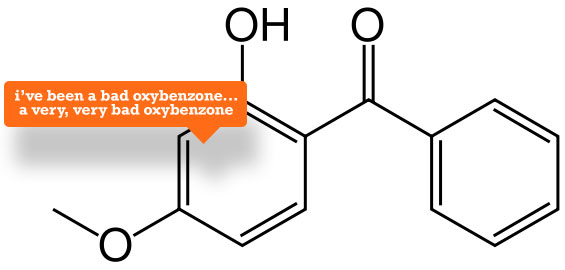
“I was bad, very bad oxybenzone,” the caption on the picture.
Another unpleasant conclusion about chemical UV filters is that they can have a harmon-like effect, and when they get into the seas and oceans when swimming, they change sex and cause developmental disorders of the genital organs in fish, molluscs and other aquatic life. It is not yet known whether chemical UV filters can cause hormonal disorders in humans, but they can by no means be called safe ingredients.
How do natural UV filters work?
Natural UV filters are safe primarily because they do not penetrate deep into the skin, but act on the surface. Therefore, you need to apply natural sunscreen carefully distributing it over the entire surface of the skin, as if covering it with a shield - only in this way can natural UV filters be guaranteed to protect the skin from solar radiation.
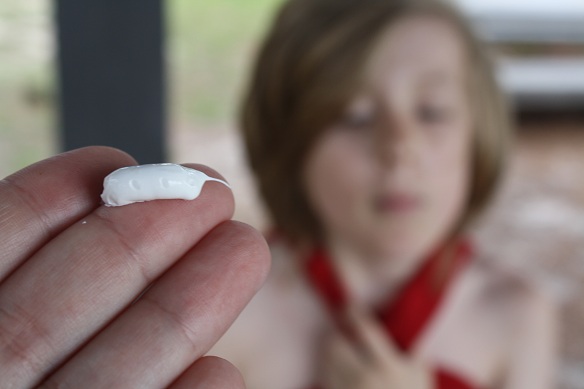 Natural filters still have a minus: being pigments, they give the skin a whitish tint. To minimize the “white mask” effect, the cosmetics industry has created nanoparticles of zinc oxide and titanium dioxide, which make it possible to obtain an almost transparent coating. On this moment studies of nanoparticles confirm that despite their small size, they do not penetrate the epidermal barrier.
Natural filters still have a minus: being pigments, they give the skin a whitish tint. To minimize the “white mask” effect, the cosmetics industry has created nanoparticles of zinc oxide and titanium dioxide, which make it possible to obtain an almost transparent coating. On this moment studies of nanoparticles confirm that despite their small size, they do not penetrate the epidermal barrier.
What radiation do natural UV filters protect against?
Titanium dioxide protects the skin from UVA and UVB rays. Zinc oxide from UVA radiation. Therefore, it is advisable to choose sunscreens that contain titanium dioxide or both natural UV filters. Vegetable oils for sun protection If you look at the composition of natural sunscreen, you will find that vegetable oils are used along with UV filters.
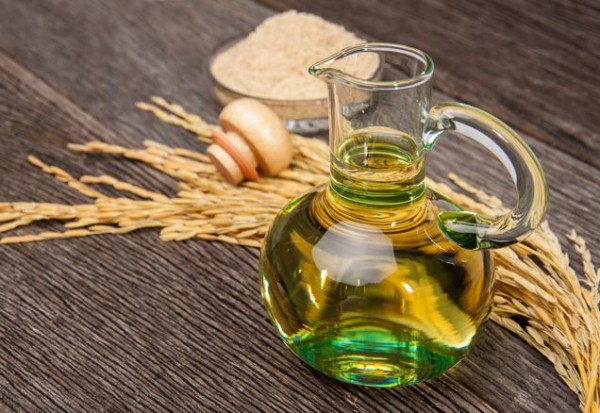 Often, manufacturers themselves indicate in the annotation that, they say, such and such vegetable oil protects the skin from the sun. Does this mean that only vegetable oils can be used to protect against UV radiation? Not certainly in that way. Sunburn, i.e. the production of melanin, is a natural defensive reaction skin for damage sun rays.
Often, manufacturers themselves indicate in the annotation that, they say, such and such vegetable oil protects the skin from the sun. Does this mean that only vegetable oils can be used to protect against UV radiation? Not certainly in that way. Sunburn, i.e. the production of melanin, is a natural defensive reaction skin for damage sun rays.
Some vegetable oils, due to the content of a high percentage of tocopherol (vitamin E), carotenoids, fatty acids, successfully restore skin injured by UV rays.
Therefore, as additional components in cosmetics, natural oils perfectly heal and nourish the skin with antioxidants. However, by themselves, they can neither reflect nor absorb UV radiation to the extent that chemical or physical filters do. Tanning oils, traditionally recommended for tanned skin adapted to the sun's rays, because they cannot provide fair skin a high degree protection.

Karanji tree, photo from www.ayurwiki.info
Nevertheless, the cosmetic industry does not stand still and offers new products. For example, French organic stamp Acorelle has released a new sun protection line, which includes sunscreen oil with SPF-30. The basis of the product is vegetable oils of karanji, sunflower and olive. The French promise protection from UV-A and UV-B rays, a non-sticky texture and water resistance. We do not have details yet, but we hope that this summer we will be able to test this product and provide you with comprehensive information.
What is SPF?
This is the Sun Protection Factor - that is, the sun protection factor. If without some protection your skin starts to turn red after, say, 15 minutes of exposure to the sun, then with a cream, for example, SPF 15, it will only start to turn red after 225 minutes (15 minutes multiplied by the value SPF factor). This, by at least, in theory (in practice, as a rule, everything happens much earlier, because we bathe, rub ourselves with a towel, and in general).
 At the same time, it must be understood that the efficiency of UV absorption of SPF 50 differs from SPF 100 by only a few percent, and not twice: SPF 50 delays 98% of ultraviolet, and SPF 100 - 99%.
At the same time, it must be understood that the efficiency of UV absorption of SPF 50 differs from SPF 100 by only a few percent, and not twice: SPF 50 delays 98% of ultraviolet, and SPF 100 - 99%.
Which oils have an SPF factor?
- Macadamia Oil - SPF 6
- Soybean Oil - SPF 10
- Avocado Oil - SPF 4-10
- Olive Oil - SPF2-8
- Shea butter (shea butter) - SPF3-6
- Almond Oil - SPF 5
- Sesame oil - SPF 4
- Hemp Oil - SPF 6
- Jojoba oil - SPF 4
- Coconut Oil - SPF 2-8
Or maybe, well, him, the sun?
Uncontrolled sunbathing is just as harmful as completely depriving yourself of the pleasure of soaking up the sun. After all, the sun contributes to the production of vitamin D, which is difficult to obtain from food, and which is responsible for the absorption of calcium and phosphorus in the intestines (and hence the prevention of osteoporosis), is involved in metabolic processes and cell reproduction processes. Therefore, instead of completely isolating yourself from the sun, it is better to find the right sunscreen for yourself.
To eat this, to get sunburnt?
Beta-carotene in food, when consumed in large quantities, contributes to a better and more even tan.

Photo from healthylivinghub.net
Most beta-carotene is found in carrots, apricots, peaches, spinach and lettuce, pumpkin, melon, watermelon and red bell pepper.
How to use natural sunscreen?
- Apply sunscreen 30 minutes before going to the beach.
- To ensure complete protection, the product must be applied evenly and not only on the face and body, but also on the hands and feet. This is especially true for those who love to engage in beach sports.
- Sunscreen should be reapplied every 1.5-2 hours and reapplied after swimming, even if the bottle says “waterproof”.
- To protect the delicate skin of the lips, use a lip balm with SPF.
- When choosing a sunscreen, consider your skin type - the lighter and thinner your skin, the higher the SPF of the product should be. As a rule, blondes and redheads burn the most easily.
- If you are taking medications that have a photosensitizing effect, or if your skin has recently been exposed to intense cosmetic procedures(peelings, plastic surgery, laser hair removal etc.), it is necessary to use products marked sunblock and SPF not lower than 30.
What natural sunscreens are sold in Russia?
There are many sun protection lines on the Russian market. Both certified Phyt's (Cosmebio), Lavera (NATRUE), Alphanova (Cosmebio), Acorelle (Cosmebio) and non-certified products are available - Aubrey Organics, Nature's, Helan, Iris Aromatherapy Center, etc.
Summer is the time when the head is freed from the work routine, the wardrobe is free from warm clothes, and the skin is free from excess makeup. Rest for the mind is, of course, a vacation on the coast. But for the skin, this type of leisure can be a serious test.
What should be the face care in the summer? Is it possible at least in the summer to do without chemistry in cosmetics Oh?
Folk sunscreen for face care
Light moisturizing face cream, refreshing masks and quality Sunglasses- that's all, universal daily protection for every summer day is ready. In addition to it, it is desirable to correct the set daily procedures: minimize washing with tap water (from this the skin becomes at least dry and tight), replacing them with washing with non-carbonated mineral water or chilled chamomile tea. And cosmetic milk can be replaced with kefir or low-fat sour cream.
With refreshing face masks in summer it is even easier - experts recommend using almost everything as an active ingredient for care. summer fruits and vegetables. After all, grapes, eggplant and even zucchini moisturize the skin; apricot and peach relieve irritation and soothe the skin, lemon tightens pores, and strawberry refreshes and whitens age spots. Nature even gave us natural UV barriers - this essential oil immortelle and carrot seed oil.
For a sun protection effect, they can be added to daily cream. If the active sun has already managed to "inherit" on the skin - from uneven pigmentation whitening masks with essential oils of lemon, juniper, neroli (by the way, this is just bitter orange oil) or parsley are saved. And with sunburn fans natural cosmetics St. John's wort essential oil is added to the fatty base.
Natural oils - as a remedy for sunburn
Saturated vegetable oils are a great alternative traditional means for Tan. The most famous of the folk sunscreens and most actively used by manufacturers of natural cosmetics are avocado, jojoba, shea or shea butter, sesame oil and raspberry seed oil. Avocado oil has natural sunscreen properties, reflects the sun's rays, has a degree SPF protection 2-4. Jojoba oil not only has protective SPF properties 2-4, but also used as an after-sun product. The sun protection factor of shea butter is 4, it is actively used by manufacturers of cosmetics. In addition, most vegetable oils also have excellent ones.
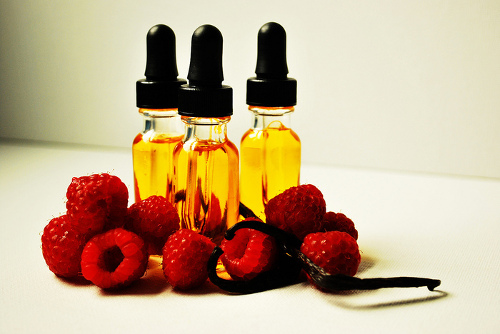
IN Lately increasingly included in natural remedies to protect against excessive sun exposure, you can find green coffee oil, hazelnut oil, and even the mysterious buriti oil. The latter is produced from the fruits of a palm tree that grows on the banks of the Amazon. Due to the high content of unsaturated fatty acids and beta-carotene, buriti oil perfectly protects the skin from dehydration and creates a natural barrier to summer sun rays.
SPF factor of natural oils
Sunscreens for the face from professionals
When going on vacation, the last thing we want to do is mess around with a lot of vials and bottles of essential oils and fatty bases. Ready-made sun protection products give you much more comfort in use. They can be in the form of milk or spray. As a filter of UV rays, they use mineral cosmetic elements - titanium dioxide and zinc oxide and plant extracts. Unlike traditional cosmetics, natural ones do not contain paraffin, silicones, synthetic dyes and fragrances.
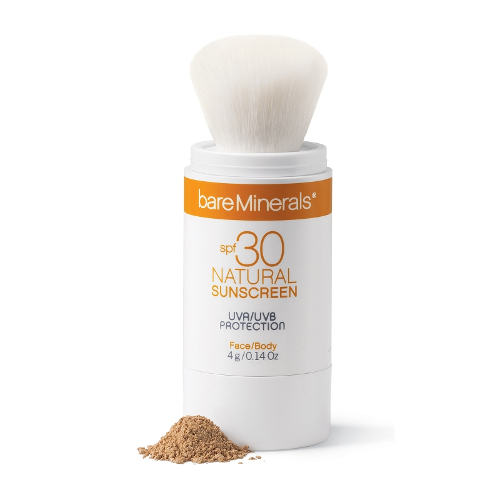
Bare Escentuals, the largest manufacturer of mineral cosmetics, offers its customers more than a dozen mineral-based sunscreens. The most popular ratings on review sites received Bare Escentuals - SPF 30 Natural Sunscreen.
Sunscreens are produced by many popular brands of natural and organic cosmetics. Thus, the Lavera eco-brand has been producing sunscreens, milk for tanning, special means for babies. Especially popular with eco-shoppers is Lavera After Sun Lotion. The milk is 100% organic and has won several prestigious Natural Health Beauty Awards in 2009 and 2010.
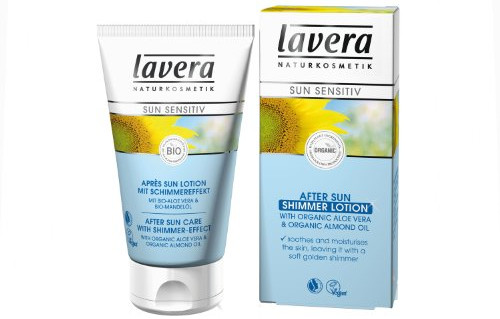
Aubrey Organics has sun protection products that are certified organic in their arsenal. They have a balanced composition and not only protect the skin from harmful sun rays, but also moisturize it. pay attention to Aubrey Organics - Natural Sun - Saving Face SPF 15
Sunscreen lines are also available from such eco-brands as Vita Nature, Nature Secrets, Himalaya Herbals. Almost all products from manufacturers, except for natural or physical UV filters, contain active ingredients for the skin (dietary supplements): vitamin E (an antioxidant that protects the skin from free radicals), bisabolol (chamomile flower extract is a strong anti-inflammatory agent), panthenol, oil jojoba or other plant extracts.
The Best Sun Shampoos for Hair
Hair also needs natural UV protection, and special sunscreen shampoos, which are now present in the line of almost every manufacturer of natural cosmetics, can provide it. When choosing, I recommend paying attention to:
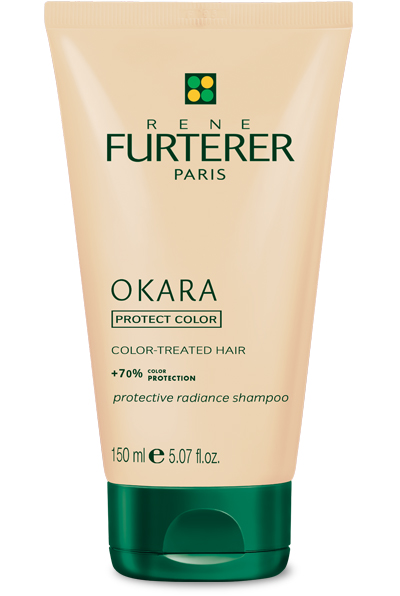
Rene Furterer Okara Protect Color Protective Radiance Shampoo One of the most effective shampoos according to customer reviews. Sun protection factor 70. (70% of hair color will be preserved).
Redken Sun Shape Shampoo Shampoo from the popular Redken sunscreen line
LONDA CARE NEW Sun Spark Shampoo Almost the only sunscreen shampoo that you can buy without any problems in Russia.
Mark Hill Travel Size Holiday Hair Sun Protector Spray SPF6. Although this is not a shampoo, but you can add it as a bonus. Just spray this spray on your hair when you are going to the beach and your hair will not change color 100%!
No matter what sunscreen is in your makeup bag this coming holiday season, it will must not be: a) universal for the skin of the face and body, b) last year's - if the tube is not tightly closed, the product may well deteriorate during the year. And finally interesting fact from the collected works of the Ministry of Health: exposure to the sun should not exceed the limit of 50 hours per year. Have a nice holiday!
Only Elena Malysheva can give you even more tips for caring for your face in the summer
Harm ultraviolet radiation, alas, not exaggerated: premature aging, dry skin, possible dermatitis and even cancer. Here is just a small list of what seemingly innocent sun rays can give. If you do not use industrial cosmetics, use the following in your morning care in the summer.
If you are traveling to very hot countries, make an exception and use care products with an SPF of at least 30. This will protect you from burning.
COCONUT OIL: SPF 7
If you are planning a long raid around the city, apply Coconut oil before entering the body and literally quite a bit - on the hair (no more than a match head for long hair). When it comes to facials, coconut oil can clog pores and cause breakouts. So be careful and only use coconut oil on your face if you're sure it won't clog your pores.
RASPBERRY SEED OIL: SPF 25
Raspberry seed oil - unique in its own way natural composition, it is advised to use it on the beach in our latitudes.
The oil is very rich in vitamin E, it stops the aging process, and also nourishes the skin, smoothes wrinkles. In addition, it helps retain moisture in the skin and heals skin lesions. Ideal for all skin types.

SHEA BUTTER: SPF 7
One of the most gentle oils. So, it can be used even for delicate baby skin. It is perfectly absorbed, protects the skin and moisturizes it. Interestingly, American tribes have been applying this oil to their skin and hair for many centuries to protect themselves from the scorching rays of the African sun.
The only drawback of the oil: it can be comedogenic. Therefore, before using on the skin of the face, the product must be tested.
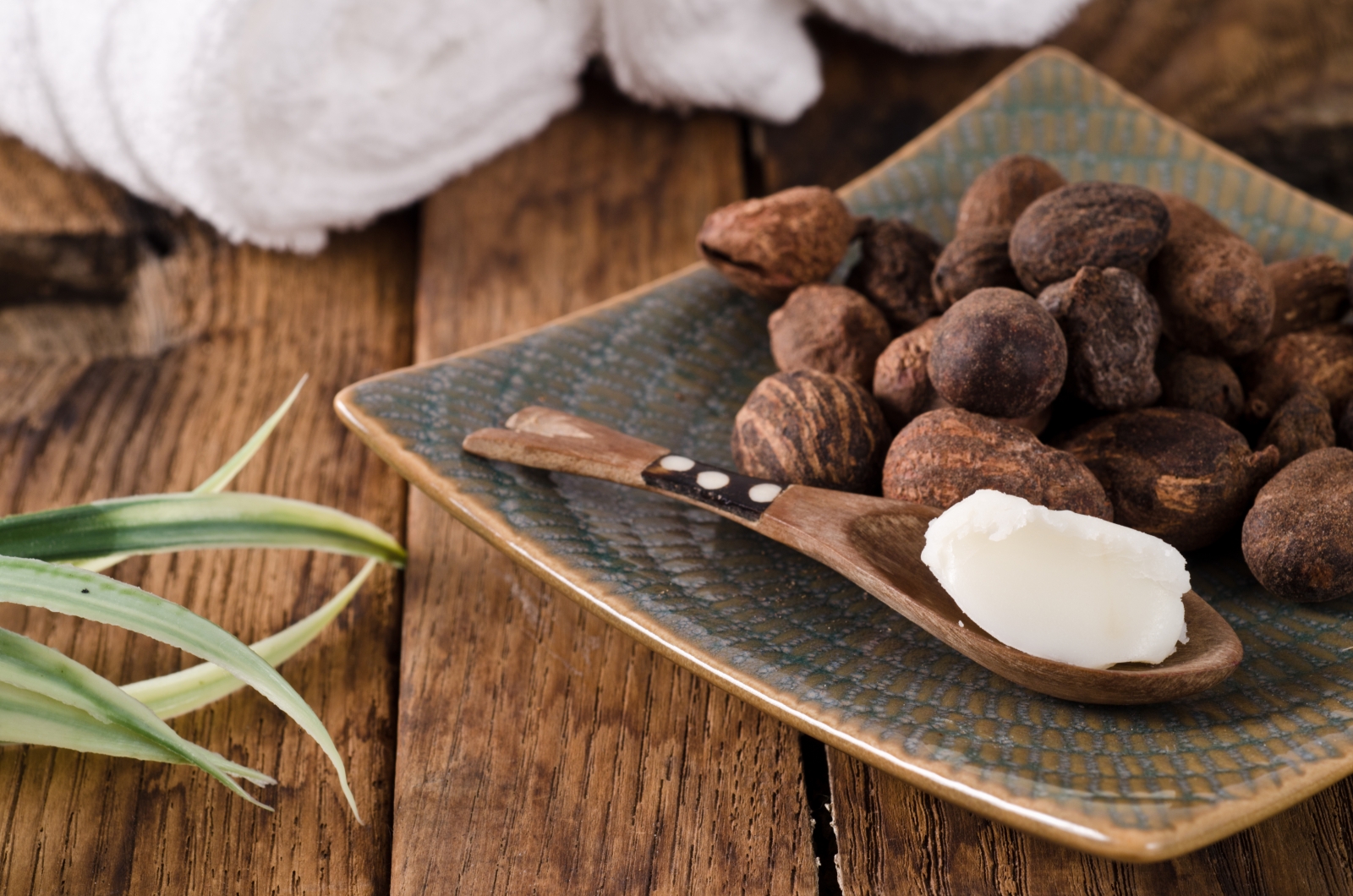
In the hot summer, you definitely need to protect your skin from the burning rays of the sun, and therefore, going on vacation, we buy products with an SPF factor. Does it exist among natural products alternative to such means? Is it possible to use natural vegetable oils for sun protection?
Be beautiful every day
There are many base (vegetable) oils that have in their composition of SPF. They can also be used as a day cream - they are easily absorbed without leaving a greasy film on the skin. To choose the oil that is right for you, you need to decide what effect, in addition to direct protection from the sun's rays, you need.
Avocado Suitable for everyday skin care of the neck, face and whole body. It has a strong moisturizing effect, so it is especially recommended to apply it to dehydrated, dry skin. IN avocado oil contains sterols that prevent skin aging (especially after menopause) and help in the fight against age spots.
Jojoba oil suitable for both oily and dry skin, because it has restorative properties. It gives the skin a beautiful and even color, and also helps to eliminate acne.
Cocoa helps to get rid of small skin defects (scars, consequences of furunculosis, acne and etc.). If you use this oil regularly, you can forget about crow's feet. The skin becomes elastic, radiant, soft.
Coconut universal for all skin types. This oil is instantly absorbed and completely absorbed by skin cells, gives the effect of "velvety" and fights fine wrinkles.
Shi makes your skin smooth, supple and firm. Half a century ago, scientists found that the peoples of Africa, who regularly use shea butter, very rarely suffer from skin diseases. And despite the constant exposure to the sun, their skin looks very young.
Each of these oils should be applied to the skin thirty minutes before going outside. Essential oils such as ylang-ylang, lavender, and wild carrot can also be used to enhance the protective effects of vegetable oils (two drops of essential oil will need to be added to the base oil).
You can use absolutely any essential oil, if it suits your skin type, the main thing is that it should not be phototoxic. Phototoxicity is the ability of essential oils to increase the skin's susceptibility to UV rays.
The use of such oils can cause sunburn and lead to the formation of age spots. They mainly include citrus fruits: grapefruit, lime, tangerine, bergamot, orange, leuzea, lemon, petitgrain, as well as thyme, rosemary and angelica. It is not recommended to use them in sunny weather.
How to help the skin?
After acceptance sunbathing skin needs support. To do this, you can use either the basic vegetable oils, which were mentioned earlier, or oils that have a pronounced moisturizing effect (for example, oil grape seeds, macadamia or almond). In order to reach best effect, you need to mix them with lavender or mint oil. They soothe the skin and fix the tan.
But if your skin is still burned in the sun, already familiar vegetable and essential oils. In this case, it is best to use the essential oils of yarrow and noble navel. To prepare effective ointment from burns, you need to do the following: in thirty milliliters of coconut oil, dissolve five or six drops of chamomile, yarrow, noble and lavender oils (if something is not at hand, you can exclude it from the recipe). Then shake and put in the refrigerator. At temperatures below 25 0 C, coconut oil will harden, so the prepared mixture can not be preheated and used as an ointment.
Helpful Hint: It may well happen that base oil will not be at your fingertips at the right time. In this case, you can mix any essential oil with ordinary sour cream and apply to damaged skin.
